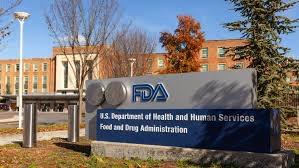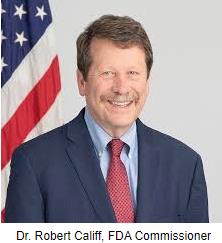 The U. S. Food and Drug Administration (FDA) has submitted requests for enhancements and activities that will add $7.2 billion to the Fiscal Year 2024 budget. In supporting the request, the Commissioner, Dr. Robert M. Califf, stated that the funding is required for vital oversight of tobacco products, to strengthen medical product safety and to ensure that programs have the highest success for the good of public health.
The U. S. Food and Drug Administration (FDA) has submitted requests for enhancements and activities that will add $7.2 billion to the Fiscal Year 2024 budget. In supporting the request, the Commissioner, Dr. Robert M. Califf, stated that the funding is required for vital oversight of tobacco products, to strengthen medical product safety and to ensure that programs have the highest success for the good of public health.
The FDA release notes, “Building on lessons learned from the infinite supply chain response, the budget includes funding to modernize infant formula oversight and to respond to shortages of critical foods and to reduce exposure to toxic chemicals in food.” It is evident that the FDA intends to expand oversight of the animal feed industry including ingredients that are combined, packaged and sold as animal food. It is however unclear whether the FDA is referring to animal feed or food derived from animals in their request for funding since the USDA-FSIS is responsible for red meat and poultry.
Among the components of the budget, FDA has requested: -
- $130 million for food safety and nutrition modernization. This activity would include food labeling and the oversight of animal feed. It is evident that the request relates to the widely criticized reorganization implementing a matrix structure.
- $10 million is requested for improvements in information technology including emerging threats, and allowing real-time continuously access, analysis and aggregation of information.
- $16 million is requested for “mission support functions within the Office of the Commissioner”. This is intended to provide strategic direction, policy coordination and business services to enhance the efficiency of FDA programs.
The FDA intends to require animal drug sponsors to make post-approval safety-related label changes based on information that becomes available after approval. FDA will request the authority to exclude products or classes of products that either the FDA or the Environmental Protection Agency consider deleterious. The FDA intends to assume regulatory authority for animal-use pesticides to be regulated as animal drugs.

The FDA intends requiring industry to test food products to be consumed by infants and children for the presence of toxic elements and make available the results of assays. This requirement relates to the revelation that juices marketed for children were and are contaminated with heavy metals.
The FDA will apply funding to effect mandatory recall covering all human and animal drugs medical devices, tobacco products, cosmetics and foods that are currently under the jurisdiction of the FDA and are subject to recall.
While it is recognized that a government agency should be responsible for maintaining the safety and efficacy of drugs and medical devices, the question of divided jurisdiction among the FDA, USDA-FSIS and EPA among other Federal agencies raises the issue, now openly discussed, whether the U. S. public would be better served by an independent Food Safety Agency.
Dr. Califf is asking for a lot of money to achieve what is necessary but should have been incorporated in the mission of the agency. Dr. Califf is attempting to pour money into an agency with an inappropriate organizational structure and a culture indifferent to food safety. Recent history confirms that the FDA has underperformed with respect to food safety, resulting in a number of significant outbreaks of foodborne disease, potential toxicities and obvious failures in oversight of the mission to protect consumers.

The FDA press release on March 9th is replete with jargon and lofty promises. Implicit in the release will be the imposition of inappropriate restraints and regulations with respect to animal production and on the compounds required to maintain profitability in the agricultural and livestock sectors.
Without demonstrating that he can run the FDA to accomplish the basic missions of the Agency, Dr. Califf appears intent on mission creep and acquiring jurisdiction over aspects of animal production for which the FDA is ill-suited.
EGG-NEWS supports the reasoned recommendations of prominent experts including attorney William Marler to create a separate food agency split from the FDA. Egg-News goes a step further in suggesting that any new agency should incorporate the functions of the USDA-FSIS. Pathogens are unresponsive to Washington turf bureaucracy. Oversight of food safety should be a seamless activity devoid of jurisdictional disputes such as the responsibility for pizzas with either cheese or pepperoni toppings.